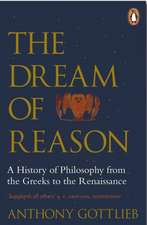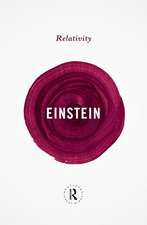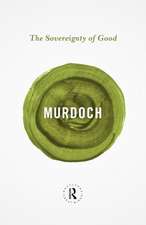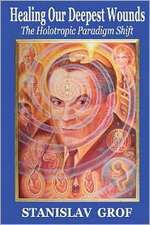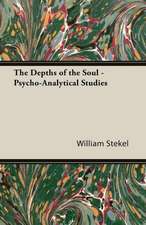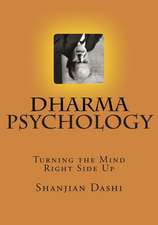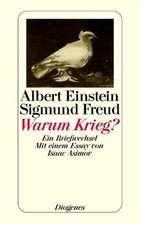Leonardo Da Vinci
Autor Sigmund Freuden Limba Engleză Paperback
| Toate formatele și edițiile | Preț | Express |
|---|---|---|
| Paperback (9) | 44.95 lei 3-5 săpt. | |
| CREATESPACE – | 44.95 lei 3-5 săpt. | |
| CreateSpace Independent Publishing Platform – | 46.00 lei 3-5 săpt. | |
| CREATESPACE – | 46.23 lei 3-5 săpt. | |
| CREATESPACE – | 57.48 lei 3-5 săpt. | |
| CREATESPACE – | 64.79 lei 3-5 săpt. | |
| Taylor & Francis – 17 mai 2001 | 88.43 lei 3-5 săpt. | +4.25 lei 5-11 zile |
| Lector House – 6 iun 2022 | 57.54 lei 6-8 săpt. | |
| Lulu.Com – 15 mar 2020 | 92.13 lei 6-8 săpt. | |
| Taylor & Francis – 2 iul 2013 | 167.13 lei 6-8 săpt. | |
| Hardback (3) | 98.11 lei 6-8 săpt. | |
| Alicia Editions – 23 iun 2020 | 98.11 lei 6-8 săpt. | |
| Taylor & Francis – 24 iun 1999 | 412.11 lei 6-8 săpt. | |
| Taylor & Francis – aug 2016 | 676.89 lei 6-8 săpt. |
Preț: 46.00 lei
Nou
Puncte Express: 69
Preț estimativ în valută:
8.80€ • 9.16$ • 7.27£
8.80€ • 9.16$ • 7.27£
Carte disponibilă
Livrare economică 24 martie-07 aprilie
Preluare comenzi: 021 569.72.76
Specificații
ISBN-13: 9781512227161
ISBN-10: 1512227161
Pagini: 66
Dimensiuni: 152 x 229 x 4 mm
Greutate: 0.1 kg
Editura: CreateSpace Independent Publishing Platform
ISBN-10: 1512227161
Pagini: 66
Dimensiuni: 152 x 229 x 4 mm
Greutate: 0.1 kg
Editura: CreateSpace Independent Publishing Platform
Notă biografică
Sigmund Freud ( born Sigismund Schlomo Freud; 6 May 1856 - 23 September 1939) was an Austrian neurologist and the founder of psychoanalysis, a clinical method for treating psychopathology through dialogue between a patient and a psychoanalyst.[4] Freud was born to Galician Jewish parents in the Moravian town of Freiberg, in the Austrian Empire. He qualified as a doctor of medicine in 1881 at the University of Vienna.[5][6] Upon completing his habilitation in 1885, he was appointed a docent in neuropathology and became an affiliated professor in 1902.[7] Freud lived and worked in Vienna, having set up his clinical practice there in 1886. In 1938, Freud left Austria to escape the Nazis. He died in exile in the United Kingdom in 1939. In founding psychoanalysis, Freud developed therapeutic techniques such as the use of free association and discovered transference, establishing its central role in the analytic process. Freud's redefinition of sexuality to include its infantile forms led him to formulate the Oedipus complex as the central tenet of psychoanalytical theory.[8] His analysis of dreams as wish-fulfillments provided him with models for the clinical analysis of symptom formation and the underlying mechanisms of repression. On this basis Freud elaborated his theory of the unconscious and went on to develop a model of psychic structure comprising id, ego and super-ego.[9] Freud postulated the existence of libido, a sexualised energy with which mental processes and structures are invested and which generates erotic attachments, and a death drive, the source of compulsive repetition, hate, aggression and neurotic guilt.[10] In his later works, Freud developed a wide-ranging interpretation and critique of religion and culture.
Recenzii
'Freud's Leonardo changed the art of biography forever. Henceforth none would be complete without a rummage through the subject's childhood origins.' – Oliver James
'The domain of biography, too, must become ours . . . The riddle of Leonardo da Vinci's character has suddenly become transparent to me. That, then, would be the first step in biography.' - Sigmund Freud, letter to Carl Gustav Jung, October 1909
'Freud's Leonardo changed the art of biography forever. Henceforth none would be complete without a rummage through the subject's childhood origins.' - Oliver James
'The domain of biography, too, must become ours . . . The riddle of Leonardo da Vinci's character has suddenly become transparent to me. That, then, would be the first step in biography.' - Sigmund Freud, letter to Carl Gustav Jung, October 1909
'Freud's Leonardo changed the art of biography forever. Henceforth none would be complete without a rummage through the subject's childhood origins.' - Oliver James
Cuprins
1. Foreword to the Routledge Great Minds 2. Preface to the 1922 Edition 3. Editor's note 4. Leonardo da Vinci: a memory of his childhood
Descriere
Descriere de la o altă ediție sau format:
Sigmund Freud was already internationally acclaimed as the principal founder of psychoanalysis when he turned his attention to the life of Leonardo da Vinci. It remained Freud’s favourite composition. Compressing many of his insights into a few pages, the result is a fascinating picture of some of Freud’s fundamental ideas, including human sexuality, dreams, and repression. It is an equally compelling – and controversial – portrait of Leonardo and the creative forces that according to Freud lie behind some of his great works, including the Mona Lisa.
With a new foreword by Maria Walsh.
Sigmund Freud was already internationally acclaimed as the principal founder of psychoanalysis when he turned his attention to the life of Leonardo da Vinci. It remained Freud’s favourite composition. Compressing many of his insights into a few pages, the result is a fascinating picture of some of Freud’s fundamental ideas, including human sexuality, dreams, and repression. It is an equally compelling – and controversial – portrait of Leonardo and the creative forces that according to Freud lie behind some of his great works, including the Mona Lisa.
With a new foreword by Maria Walsh.


